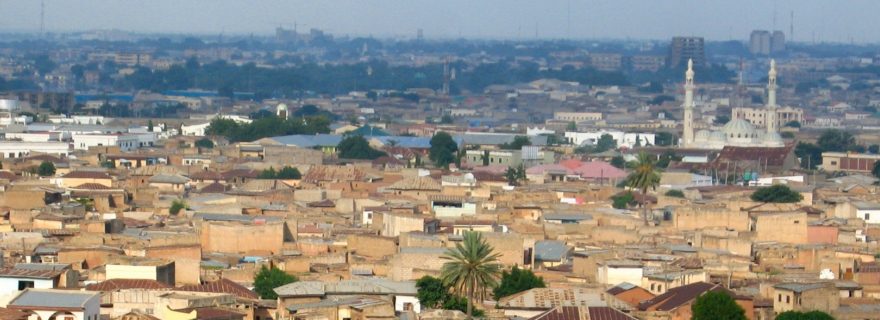Nigeria at war
Contrary to the aftermath of the recent attacks in Paris, there has been no global hashtag campaign or unity rally for the victims of the most recent Boko Haram massacres. How can this uneven public attention be explained?
“The truth is, for the average Nigerian there is no war”. Sitting in a shiny hotel in Abuja, Nigeria’s capital, discussing the security crisis in northern Nigeria with a friend from one of the country’s southeastern States, it was almost possible to believe him. “It is only for intellectuals to know what is going on. My mother doesn’t even know there is a war on. How would she know, when she is spending her time on petty trading in her village in the south?"
My friend’s words may seem strangely oblivious in the wake of Boko Haram’s recent attack on Baga: in their second attempt to take the fishing town at the far northeastern edge of Nigeria, the insurgents defeated both security forces and local vigilantes. What followed has been subject to conjecture and contestation, but the limited news stories that are available allow us to build the basic picture: the insurgents ravaged the town, killing and destroying indiscriminately, taking prisoners only if they could ‘use’ them. How many died is unclear, but one escapee described that he “kept stepping on dead bodies” as he was making his way through the bush and out of the town.
Make no mistake: Nigeria is at war. The total number of casualties most likely runs in the tens of thousands, and even the most conservative estimates put the current number of internally displaced persons (IDPs) at close to a million. So in this context, can it be true that the ‘average Nigerian’ lives in ignorance of the insurgency? News coverage of the conflict, or the lack thereof, seems to support this claim. Across the regional and political spectrum, the main focus of newspapers and TV stations main focus has been on the looming elections in February, rather than on Boko Haram. Meanwhile, Nigeria’s president, Goodluck Jonathan, long failed to even visit Borno State – until today, as part of his efforts to smooth the way for his electoral campaign in the north. It is a puzzling dynamic, especially now, given the stark contrast it presents with the political and public response to the recent murders at the Charlie Hebdo office in Paris.
How is this possible? One part of the explanation, as also suggested in today’s NRC Handelsblad, is that for many Nigerians, war has not changed much. Most Nigerians are poor and struggle to make ends meet. Moreover, Nigeria is a large and complicated country and many people lack the resources, skills (e.g. literacy), and perhaps interest to travel and learn about it. So for the most part, life must go on.
But is it all down to poverty and the indomitable human capacity to adjust to hardship? Let me suggest three additional explanations. First, we need to consider why the Nigerian news media have not been able to report very effectively on Boko Haram. Few newspapers and TV stations have reporters on the ground in the northeast, and most of the reporting focuses on what officials and politicians have said about the situation rather than on factual information and investigative journalism. This is not because the press is not free (it is), or because journalists have no standards (many do). Rather, it is caused by the economic structure of the Nigerian media that provides virtually no funding for fieldwork and incentivizes journalists to collect money from the objects of their reporting rather than to rely on their (often insufficient) salary.
Second, the lack of understanding of the Boko Haram crisis on the part of (some) Nigerians reflects the dark side of Nigeria’s celebrated ethnic and religious diversity. The country is renowned for its rich religious life and its variety of cultures and languages, but also notorious for the fractious and sometimes violent relations between these groups. In a context of patronage politics, poor governance, and uncritical news media, many Nigerians have grown to distrust religious and ethnic ‘Others’. Such distrust may be part of the reason why people unaffected by Boko Haram are ill informed or disinterested in the war.
Finally, the stark difference between the reactions of President Hollande and President Jonathan to the crises in their countries speaks to a third factor that can help to explain public resignation to Boko Haram. President Hollande positioned himself as the protector of the French nation. In contrast, President Jonathan and other Nigerian politicians have consistently attempted to displace the blame for the war to others (such as the ‘northern elite’ allegedly sponsoring Boko Haram to discredit Jonathan) and position themselves as political victims of the Boko Haram insurgency. They also tend to play down the seriousness of the crisis, leading them to be mocked as the “frogs in slowly heating water, unaware that they are dying”. This callous politicking has fed public uncertainty and suspicion about the true causes and nature of the war.
So my friend may have had a point. But what he failed to mention was that, every day, thousands of Nigerians are risking their lives to save their loved ones and fight the insurgency, or spending their meager income to care for some of the IDPs. And every day, the duration of the captivity of the Chibok girls is on the cover of most national newspapers (274 days at the time of writing). So the ‘average Nigerian’ actually has many faces, simultaneously uninformed, disinterested, outraged, and brave. We can only hope that the brave ones wake the frogs before the water starts to boil.



0 Comments